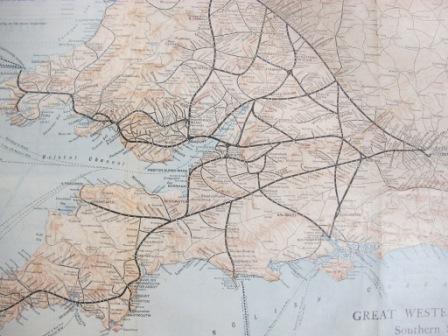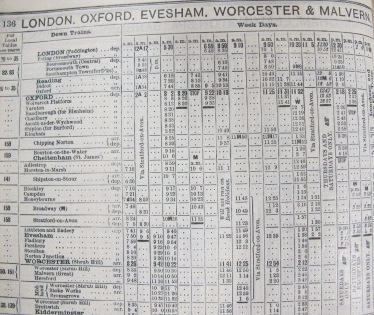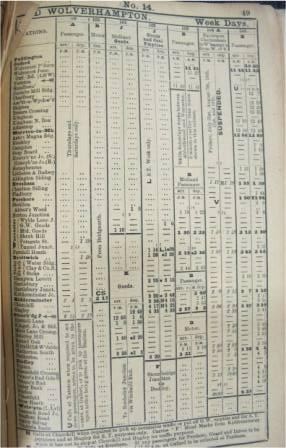
Western tentacles of the Great Western Railway (reference RAIL 936/48)
Edward Thomas (1878-1917), who was killed in action during the First World War, was a poet and essayist chiefly remembered for his poem Adlestrop which recalled the sudden peace and serenity of a village railway station in the days prior to the First World War.
Adlestrop by Edward Thomas
Yes, I remember Adlestrop —
the name, because one afternoon
Of heat the express-train drew up there
Unwontedly. It was late June.The steam hissed. Someone cleared his throat.
No one left and no one came
On the bare platform. What I saw
Was Adlestrop – only the nameAnd willows, willow-herb, and grass,
And meadowsweet, and haycocks dry,
No whit less still and lonely fair
Than the high cloudlets in the sky.
And for that minute a blackbird sang
Close by, and round him, mistier,
Farther and farther, all the birds
Of Oxfordshire and Gloucestershire.
But was the train due to stop at Adlestrop anyway?
The use of the word ‘unwontedly’ is, in my opinion, highly significant. The train was about to pass through Adlestrop on its way to Worcester when it stopped suddenly, unexpectedly and without warning at Adlestrop itself. An unwanted and unplanned pause (and as any modern day traveller knows, unexpected and prolonged stoppages on railway journeys do occur and they are more likely to occur between stations and not at stations). But the delay was by no means unpleasant, as the poet indicates and, for Thomas, this became a sudden stop which in retrospect caught a moment of two of unexpected peace and quiet before the ‘Guns of August’ heralded four years of war.
Had the train been due to stop at Adlestrop the poem would have been very different. An anticipated stop is functional; any train traveller knows that trains stop at railway stations by the by. A stop which is unanticipated prompts the thoughts – why have we stopped? How long will the stop last? It could prompt poetic reverie. But in fact the train was due to stop, or so it appears. The GWR week day passenger timetable for June 1914 (reference RAIL 936/48) records the Paddington to Kidderminster via Oxford train as being due to leave Paddington at 10.20 am, arriving at Oxford at 11.44, leaving Oxford at 11.52, arriving at Kingham at 12.40 and arriving at Adlestrop at 12.48 – the times coinciding with the times in Thomas’ own field notes.
So a stop written into the timetable – not an ‘unwonted’ stop while the signal was up. And Thomas was also travelling with his wife, I gather, and not travelling alone.
But still a wonderfully evocative poem and, if there is poetic licence, then that does not reduce the poem in any way.


I just wonder if unwonted, meaning not habitual (ie as not its wont) wasn’t quite carefully chosen to mean it didn’t usually stop there, ie possibly he was not on the train he usually took. Not, of course, to be confused with unwanted.
Empty stations can be so evocative, tbere is a line in These Foolish Things … ‘the sound of midnight trains in empty stations…’ They make you think of lovers parting and homecomings, and all over the world, of men going off to war.
The comments about the blackbird are beautiful. ‘Blackbird singing in the dead of night’. There is a line in Beatrix Potter about all the birds began to sing. Another about skylarks singing above the sound of machineguns, was it Robert Graves?
[…] You can also read Bruno Derrick’s blog, Adlestrop, by Edward Thomas. […]
[…] reasons why trains unaccountably stop from time to time (other than to let Edward Thomas write a poem about […]